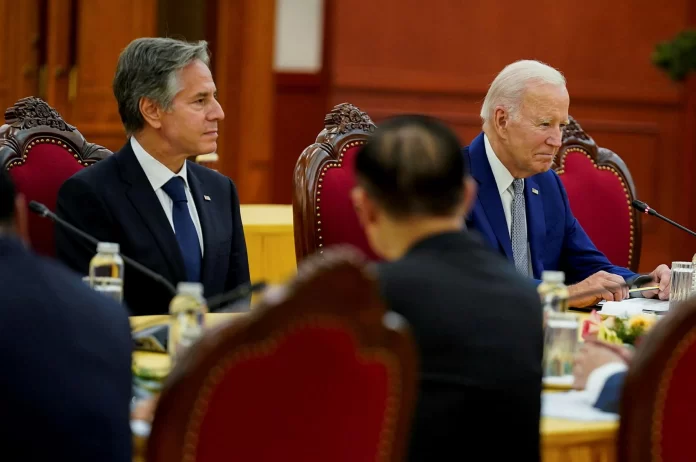Washington has lifted sanctions to allow the transfer from South Korea to Qatar of Iranian funds needed for a prisoner swap between the U.S. and Iran, Reuters reported.
Under the agreement, five U.S. citizens detained by Iran will leave the country in exchange for the transfer of funds and the release of five Iranians held in the United States. The agreement was made public on August 10.
Secretary of State Antony Blinken has concluded that lifting the sanctions is in the national security interests of the United States.
The document represents the government’s first official recognition of the release of five Iranians detained in the United States in order to secure the freedom of five U.S. citizens.
“To facilitate their release, the United State has committed to release five Iranian nationals currently detained in the United States and to permit the transfer of approximately US$6 billion in Iranian funds held in restricted accounts in the (Republic of Korea) to restricted accounts in Qatar, where the funds will be available only for humanitarian trade.”
The agreement provides Iran with only limited benefits, since the received funds can only be used for humanitarian trade.
White House spokesperson Adrienne Watson said Monday that Blinken took a procedural step in an ongoing process on Sept. 8 “to ensure Iranian funds can move from one restricted account to another and remain restricted to humanitarian trade.”
She claimed that the administration informed Congress of the agreement details from the very beginning of the process.
“As we have said from the outset, what is being pursued here is an arrangement wherein we secure the release of 5 wrongfully held Americans. While this is a step in the process, no individuals have been or will be released into US custody this week.”
According to eight Iranian and other sources, the transfer of funds and the exchange of prisoners may take place as early as next week.
The lifting of sanctions applies to certain financial institutions that are subject to the primary jurisdiction of Germany, Ireland, Qatar, South Korea and Switzerland, and may engage in transactions with the National Iranian Oil Company, the Central Bank of Iran and other Iranian financial institutions subject to US sanctions.
